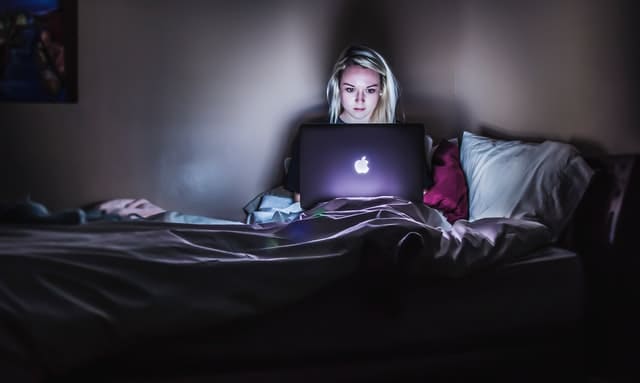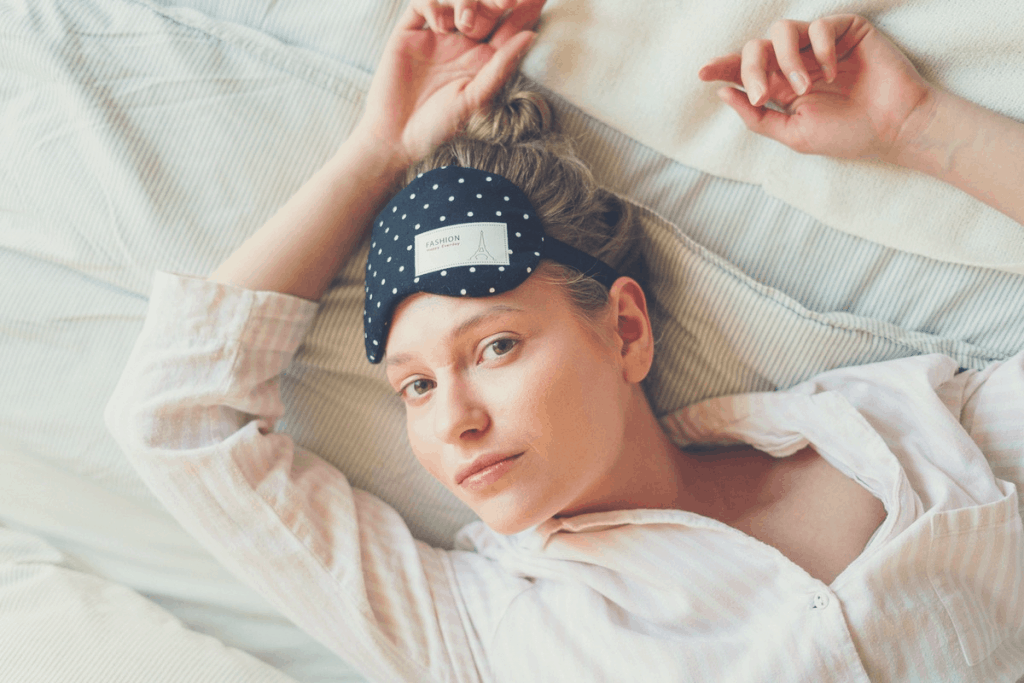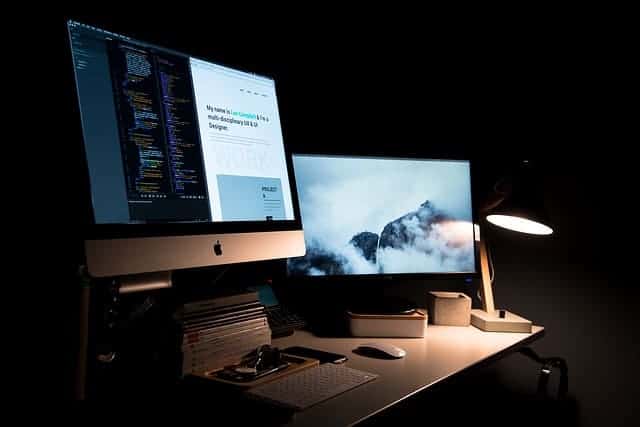We are all aware of the need to get enough sleep. However, we may not be as familiar with the negative effects that our digital devices can have on this goal. The blue light from electronic screens has been shown to inhibit melatonin production. And melatonin is what makes us feel sleepy in preparation for bedtime. In this article, we will explore in more detail the negative effects of blue light and effective methods to counteract them.
What is blue light and how does it affect sleep?
Blue light, also known as high-energy visible light, is a type of electromagnetic radiation. Blue light ranges from 380 to 500 nanometers on the spectrum of visible light. This wavelength of light is shorter than violet and longer than orange and yellow wavelengths.
Evidence suggests that when exposed to blue light, we have a reaction in our eyes called photoreceptor cells which results in less melatonin production. Melatonin is a hormone produced by the pineal gland which helps regulate our circadian rhythm or biological clock. Essentially, this hormone sends signals to the body to start winding down for bedtime so that we can get some quality shut-eye.
Research by Harvard has shown that the blue light from our mobile phones can reduce our ability to produce melatonin. Which you, as said above, need in order to get enough sleep at night. It’s produced by the body as a response to darkness.
Why is blue light bad for sleep?

The problem comes from using phones right before bedtime.
The reason for losing sleep is simple – our bodies have adapted over thousands of years to naturally respond to sunlight, and our circadian rhythms are attuned to the natural light-dark cycle of day and night. Although I’m not an expert in this field, I think it’s fair to say that most of us use our phones long after the sun goes down, and before we have had enough sleep. And the blue light is known for keeping you awake by suppressing the production of melatonin. You could almost say that melatonin has been replaced by your phone!
Even I, someone who works night shifts and used to spend all evening and the early morning hours on my phone, have started to adjust my life a bit in order to get more sleep. It’s made a huge difference.
In recent years there’s been growing awareness of how blue light from screens can impact sleep. The reason is that blue light tricks your brain into thinking it’s still daytime and your brain then suppresses the production of melatonin, the hormone which makes you feel sleepy and tired.
The result is a lowered ability to fall asleep at night. It’s no wonder that people who use their phones right before they go to sleep often notice that they’re waking up earlier than usual or have problems falling asleep.
How do you reduce blue light exposure before bedtime?
Blue light isn’t necessarily bad for us, but it is important to understand that not all colors of light are created equally and this type of light is often overlooked in the battle between screens and sleep. In order to reduce screen time and still get quality sleep, try reading an old-fashioned book before bedtime. Other tips are the following.
- Cut your screen time before bedtime by turning off your tv, computer and mobile phone an hour before bedtime .
- Make a conscious effort to manage your device’s screen-time. It could mean setting restrictions on it or limiting the amount of time you spend on it each day. This is especially important in the evening.
- Use apps that block out blue light.
Why is your sleep cycle important?

Students need sleep to study well, stay healthy, and maintain a healthy weight. Skipping sleep can lead to problems with concentration and memory, as well as general irritability. A good night’s sleep also gives students the opportunity for brain growth.
Parents need enough sleep to be able to function well during the day. Parents who are not getting enough sleep may have a hard time thinking clearly. They make mistakes at work or home that they might not have done if they were awake and alert. Sufficient rest is also important for parents so they can fulfill their duties of parenting effectively.
And last but certainly not least, kids need enough sleep to grow normally and develop properly. Sleep is a time when children learn best, and they are much less likely to be impatient and impulsive if they are rested.
Conclusion
If you’re looking for ways to improve your sleep and reduce screen time before bedtime, consider reading a book before bed or installing an app that blocks out blue light. You can also turn off all screens one hour before going to sleep. The results could be impressive! I hope this article was helpful, please share it with your friends on Facebook or Twitter.
Thanks for reading! If you have any questions, feel free to ask them in the comments section below.
